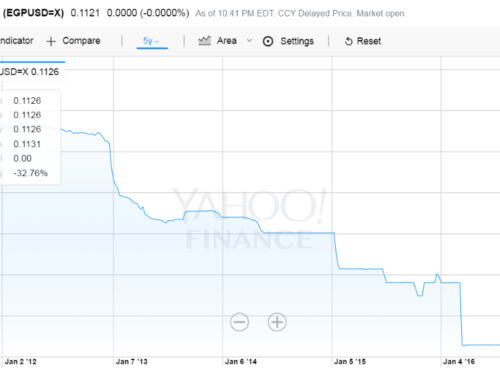Monday’s post at Foreign Policy: Transitions.

“I called people up so they would join the revolution. And they died. I let (Ahmed) Harara walk onto Mohamed Mahmoud Street, and he was blinded. My friends, who weren’t into politics but whom I talked into coming to the streets, died… All so you would block porn sites, you sons of bitches?”
The Twitter rants of activist Mohamed “Gemyhood” Beshir were outraged and heartfelt. The ridiculousness of the situation was uncanny. Never mind the imperative issues of unemployment, poverty, malnutrition, education, and police reform — the Egyptian state has opted to busy itself with the trivial, the controversial, the ridiculous: Banning porn. After all, isn’t that what the 2011 revolution was all about? Forget “bread, freedom, and social justice:” Blocking pornography is what we really need!
There’s more to it, though.
First, the decision to block access to pornography isn’t new: It actually builds on a 2009 verdictfrom the administrative courts to ban pornographic material for Egyptian users. Back then the decision was mocked as the ministry of telecommunications did not — and still does not — have the technical and human capacities to enforce such a filtering mechanism. More importantly, however, the ban came under the premiership of Ahmed Nazif, a former minister of telecommunications whose claim to fame was his efforts to popularize access to the Internet. He was unlikely to undo his own achievements.
The 2009 verdict was revived this week by General Prosecutor (and Mubarak-era holdover) Mahmoud Abdel Meguid. Recently Abdel Meguid had a public row with President Morsi, who publicly “relieved him of his duties” (with strong support for his removal from the Egyptian public), but moved him to the very cushy post of ambassador to the Vatican. The decision turned out to be illegal, and Abdel Meguid therefore remains in his post. Many believe the row between the two men was overblown.
This new decision is therefore seen as either an attempt by the general prosecutor to ingratiate himself with the ruling conservative Muslim Brotherhood (and their ultraconservative Salafi allies), or, more likely, as an initiative prompted by the government.
Second, the issue isn’t so much “pornography” as the fact of the ban itself. In a society that likes to pretend it’s religious (though really we’re talking about superficial religious hypocrisy, but that’s another subject), it’s hard to make the argument for individual freedom concerning something that would be religiously reprehensible, such as pornography, without being smeared as a proponent of “western decadence.” It’s clear that what the new powers-that-be are actually trying to do here is to re-accustom the populace to the idea that one of the natural jobs of the state should be controlling and censoring the media they consume — an effort that amounts to rolling back one of the few concrete achievements of the 2011 revolution.
And third, censorship is a very steep and very slippery slope. There is no clear definition of what would be deemed pornographic or not; and already a fringe group of Salafi youth is demanding that medical websites be censored as well (apparently they get aroused by drawings of the reproductive system). Today it’s pornography; tomorrow it’s websites that criticize religion. Already, the draft constitution, due to be finalized within days, includes a clause that “forbids insulting all prophets,” so this is not a far-fetched assumption.
Soon after it will be those that insult the state and its rulers — anything that criticizes the government would potentially be exposed to being censored.
Disappointingly, though, activists do little more than wallow on social media, and opposition politicians keep mum. As usual they are unwilling to show any kind of courage or contrary positions.
It is hence likely that the only thing standing between Egyptians and outright internet censorship is cost-prohibition of organizing servers to block IP addresses and domain names, but more importantly, acquiring an army of reviewers to flag websites and handle complaints for websites mistakenly blocked.
If you want to find out whether the ban on online porn is being enforced, anyone interested in the issue can always check the very helpful website, “Is Porn Blocked in Egypt yet?”



